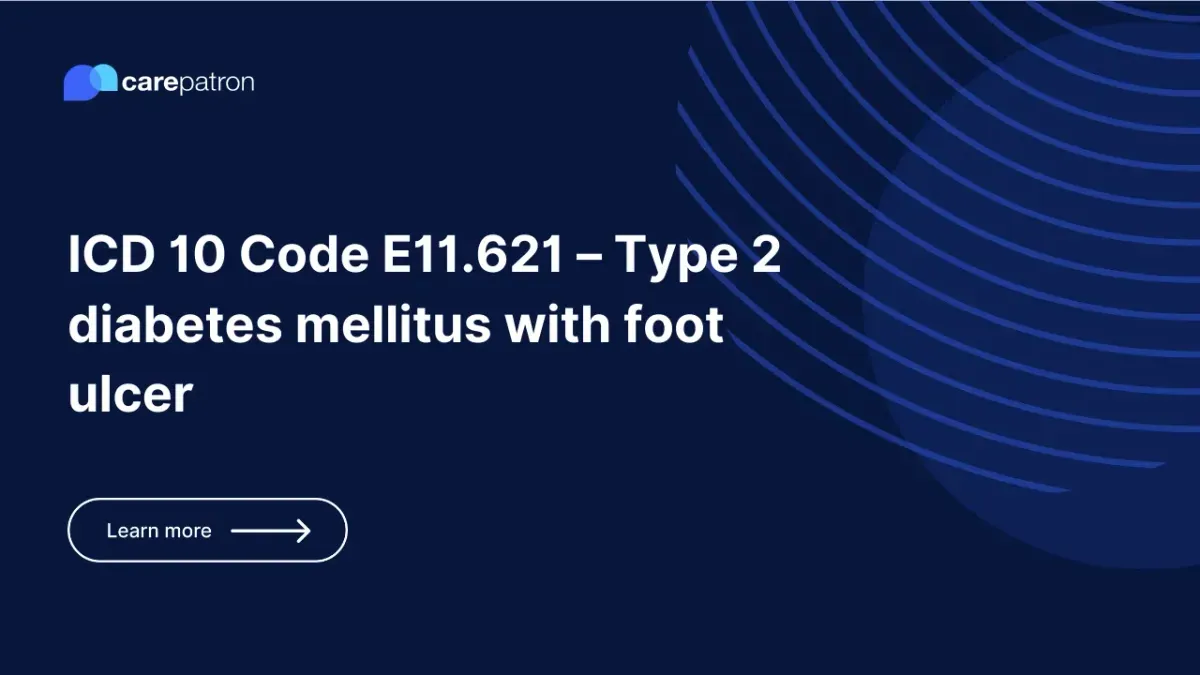
E11.621 – Type 2 diabetes mellitus with foot ulcer
Explore E11.621 for Type 2 diabetes mellitus with a foot ulcer. Discover clinical details, billability, synonyms, standard codes, and FAQs. Enhance your knowledge!
Use Code
Commonly asked questions
Preventive measures include maintaining optimal blood sugar control, proper foot hygiene, regular foot examinations, avoiding tight shoes, managing foot deformities, and seeking early treatment for foot issues.
While peripheral neuropathy is a common cause of foot ulcers in type 2 diabetes, other factors like peripheral arterial disease, foot trauma, or a combination of these can also contribute to their development.
Yes, specialized foot care, often provided by podiatrists or multidisciplinary foot care teams, is essential for effectively managing foot ulcers in individuals with type 2 diabetes. This care focuses on wound healing, off-loading pressure, infection control, and comprehensive diabetic foot education.
EHR and practice management software
Get started for free
*No credit card required
Free
$0/usd
Unlimited clients
Telehealth
1GB of storage
Client portal text
Automated billing and online payments
